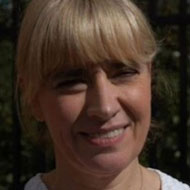UK’s new chief vet appointed

Christine is currently the chief veterinary officer (CVO) for New South Wales, Australia.
Defra has appointed a new chief veterinary officer for the UK. Christine Middlemiss will taken over from Nigel Gibbens at the end of February 2018, when he retires after 10 years in the post.
Christine is currently the chief veterinary officer (CVO) for New South Wales, Australia, where she has led major improvements to biosecurity across many farming sectors.
She was previously Defra’s deputy director for animal traceability and public health in 2016. An experienced veterinary surgeon, she also worked for a number of years in private practice in Scotland and the north of England, before joining the APHA as a divisional veterinary manager in Scotland in 2008.
Commenting on her appointment, she said: “I am delighted to have been appointed and it will be a privilege to lead my veterinary colleagues to support our farming and food industry in this hugely important role…
“The UK Government has made no secret it wants to cement its place as a world-leader on animal welfare as they leave the European Union, and I’m delighted to have an opportunity to play a part in that.”
Current CVO Mr Gibbens congratulated Christine: “Her breadth of experience from work within Government and in the private sector will enable her to provide excellent veterinary leadership to the Defra group to deliver government’s ongoing commitment to maintaining our high animal health and welfare standards and to represent the interests of the whole of the UK internationally.”
The government has recently made a number of announcements on animal welfare improvements and has pledged further reforms as we leave the EU. This includes plans to increase the maximum prison sentence for animal cruelty to five years and introducing compulsory CCTV in all abattoirs.
Animal welfare minister Lord Gardiner thanked Nigel Gibbens for his “outstanding contribution” as CVO over the past decade.



 The BSAVA has opened submissions for the BSAVA Clinical Research Abstracts 2026.
The BSAVA has opened submissions for the BSAVA Clinical Research Abstracts 2026.